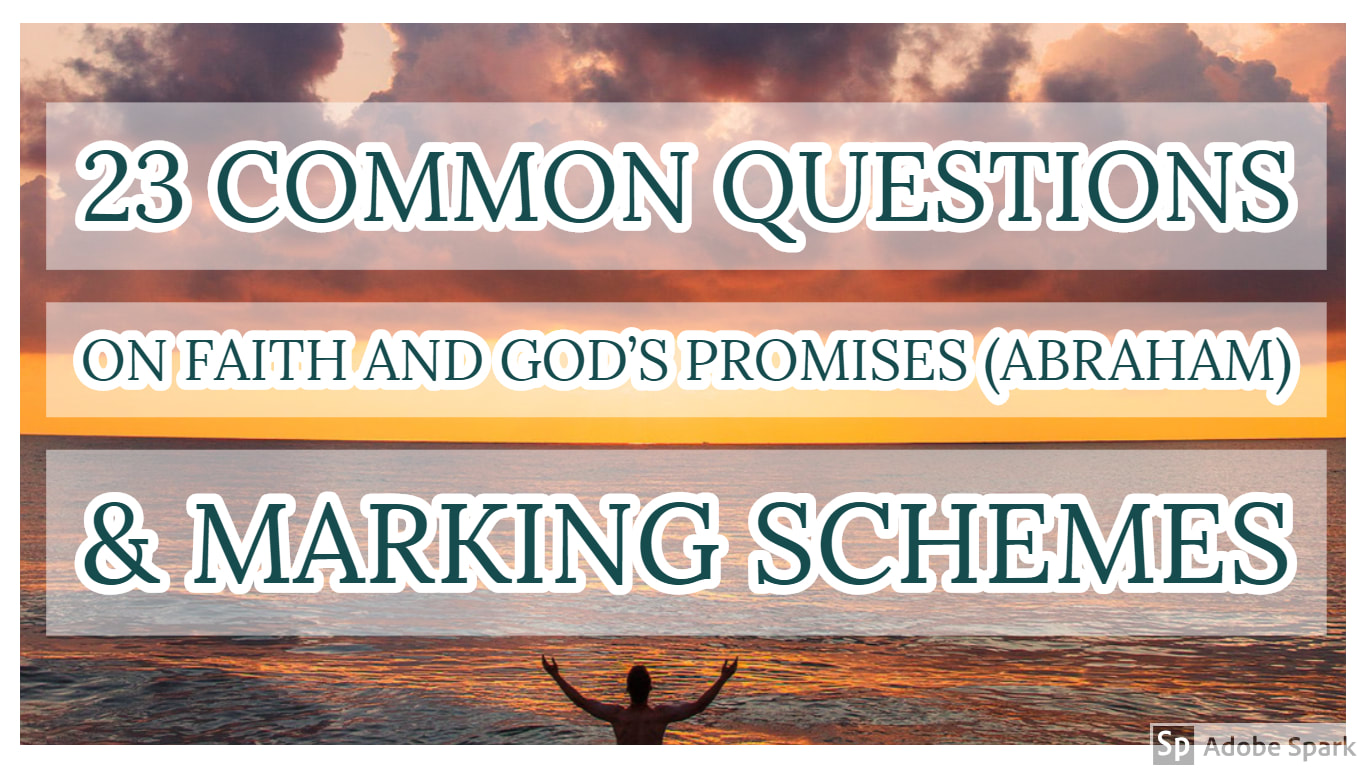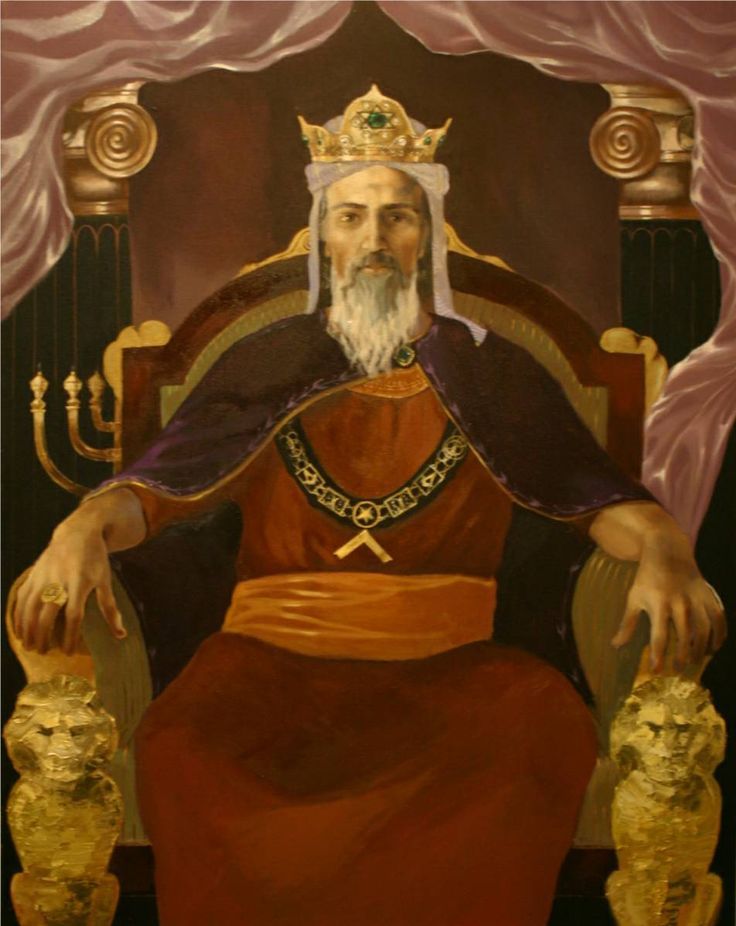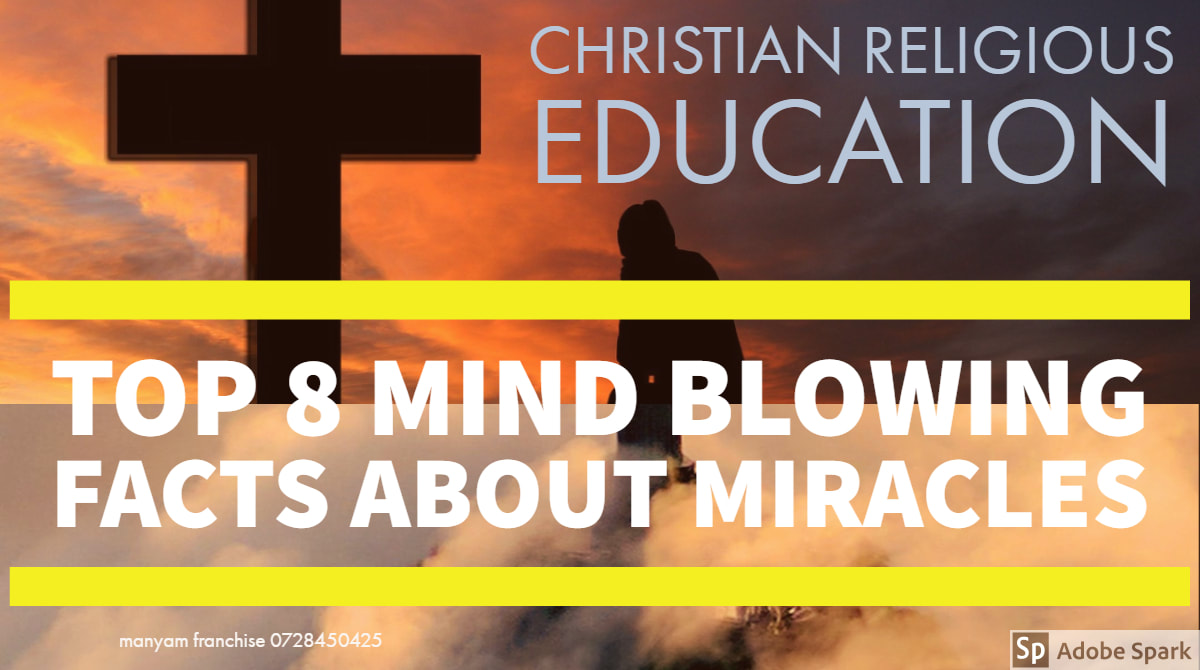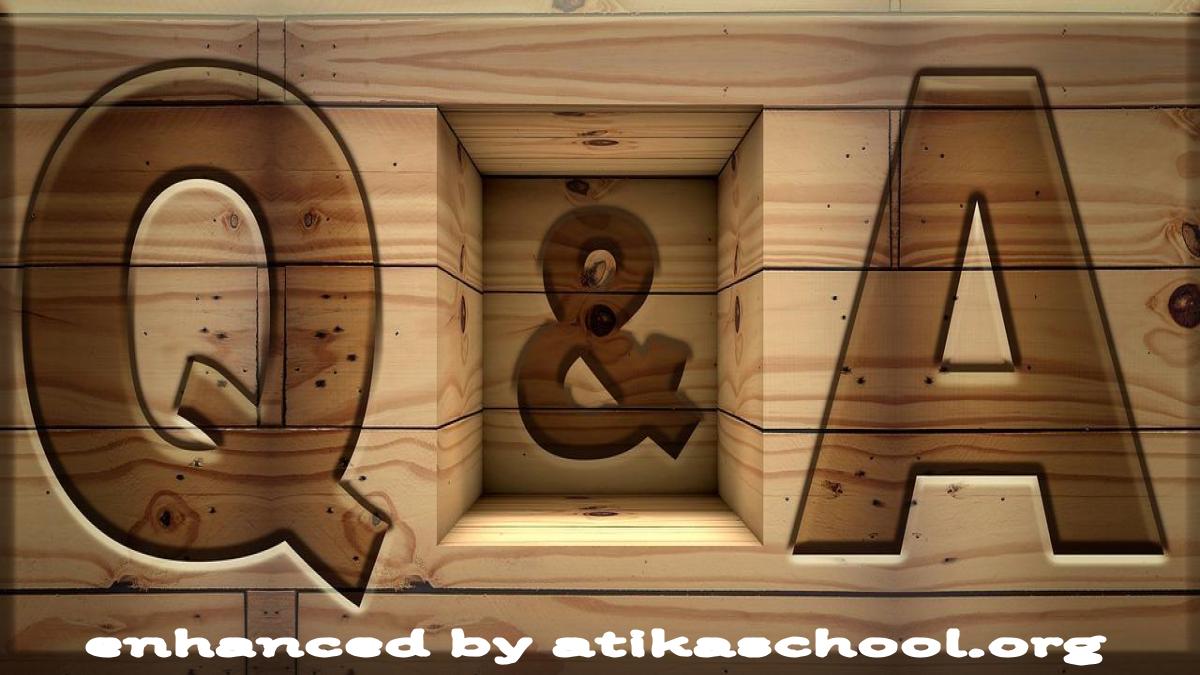KCSE CRE Questions and Answers
24 COMMON QUESTIONS ON FAITH AND GOD’S PROMISES (ABRAHAM) & MARKING SCHEMES01. State five characteristics of God’s covenant with Abraham
02. Describe ways in which Abraham demonstrated his faith in God
03. Give the promises that God made to Abraham
04. State five actions from the life of Abraham which showed that he had faith in God.
05. List five animals used in the making of the covenant between God and Abraham
A ram/A she- goat/ A heifer/ A pigeon/ A turtle dove
06. State the promises that God made to Abraham
07. Give reasons why circumcision was important to the Jews
08. State the characteristics of the Covenant between God and Abraham
09. Explain the importance of Gods covenant with Abraham
Related Links:
10. What lessons do Christians learn from the incident when Abraham was willing to sacrifice his son Isaac?
11. How does the church help to bring back members who have fallen from the faith?
12. Explain four characteristic of a covenant demonstrated in the covenant between God and Abraham.
13. Identify five lessons that Christians learn about God from the call of Abraham.
14. Identify seven challenges that Christians face while practising their faith in Kenya today.
15. Describe the covenant ceremony between God and Abraham in Genesis 15: 1-9
16. Identify four differences between the Jewish and the traditional African practices of circumcision
17. Give five reasons why church leaders take vows before starting their mission
18. State seven promises made to Abraham by God.
19. Describe the incidence when Abraham was willing to sacrifice his son Isaac (Gen 22: 1 – 18)
20. Describe the call of Abraham.
21. Explain acts of faith demonstrated by Abraham
22. Give seven reasons why God called Abraham
23. Identify five ways in which Christians can show their faith in God
24. Describe the background to the call of Abraham
0 Comments
LEADERSHIP IN ISRAEL: THE 12 MIND BLOWING QUESTIONS ABOUT SOLOMON AND ANSWERSkcse c.r.e - christian religious education questions and answers1. Explain five achievements of King Solomon.
2. Give five lessons that political leaders can learn from King Solomon.
3. State five factors which led to the division of the Kingdom of Israel after the death of King Solomon
4. Explain how King Solomon turned away from the covenant way of life
5. Identify five ways used by the Israelite Kings to bring people back to God
6. State five reasons why Samuel was opposed to the idea of having a king in Israel 1 Sam 8:6-18
7. State the factors that led to failure of David’ successor
Related Searches ...
8. What are the factors that prevent political leaders form performing their duties efficiently in Kenya today?
9. State the achievements of Solomon as King of Israel
10. Explain four factors which led to Religious Schism in Israel after the death of King Solomon.
11. Explain four ways in which King David’s successors fulfilled prophet SAMUEL'S reasons against kingship in Israel
12. Four ways in which king Solomon fulfilled Samuel’s prophecy about kingship in Israel
C.R.E QUESTIONS AND ANSWERS MODEL08092022
Give reasons why Jesus used parables in his teachings.
Give ways in which the disciples demonstrated their love for Jesus.
Describe the parable of the good Samaritan Lk 10:(25 37)
Give ways in which Jesus prepared his disciples for his coming death.
Show how Christians are preparing for the second coming of Christ.
State the signs of end times as taught by Jesus in Lk 21:5-19.
Explain how the events of the cross fulfilled the old testament prophesies.
What lessons do Christians learn from the teaching on end-time?
Explain Jesus’ teaching on the role of the Holy Spirit.
Identify six ways in which the Holy Spirit was manifested on the day of Pentecost.
Show how the gifts of the Holy Spirit are misused in the church today.
Identify the elements of unity that should exist among believers according to saint Paul in Ephesians 4:1-12.
Explain Paul’s teaching concerning the body of Christ (1 cor 12:12-27,Eph 4:1-12)
State six ways in which the church promotes unity in the society today.
The Kenya National Certificate of Secondary Education313/1 CHRISTIAN RELIGIOUS EDUCATION Paper 1 JANUARY 2021
Identify the teachings about human beings from the Biblical creation accounts. (7 marks)
State six reasons why the Bible had to be compiled into its present form by early Christians. (6 marks)
Outline seven occasions when Christians use the Bible. (7 marks)
Explain the meaning of the symbolic objects and acts used by the Hebrews on the night of exodus. (7 marks)
Relate the covenant ceremony between God and Abraham. Genesis 15:1-19. (7 marks)
Give six reasons why church leaders in Kenya take vows before starting their mission.
Ways how King David is an ancestor of Jesus Christ. (7mks)
Ways King Ahab broke the covenant in the case of Naboth’s vineyard
Reasons why it has been difficult to fight the evil of Bribery and corruption in Kenya today.(7Mks)
Roles of prophets in the Old Testament.
State the teachings of Prophet Amos about the Day of the Lord.
Identify six forms of hypocrisy in the church in Kenya today.
Outline Jeremiah’s teaching on the New Covenant. (7 marks)
State seven teachings of Jeremiah on Judgement and Punishment. (7 marks)
Identify the evils that church leaders condemn today. (6 marks)
State any seven roles of ancestors in traditional African society. (7 marks)
Identify the importance of naming in traditional African society. (7 marks)
What are the factors that affect initiation rites today? (6 marks)
Kenya Certificate of Secondary Education 313/1 CHRISTIAN RELIGIOUS EDUCATION PAPER 1
1) Give reasons why C.R.E as a subject is incorporated into the curriculum in Kenyanschools today.
2) The meaning of the expression ‘the Bible is the Word of God’
3) Occasions when Christians use the Bible
4) Significance of the events that took place on the night of the Passover
5) The qualities that Moses showed during His call
6) Lessons that Christians learn from the call of Moses
7) Reasons why the Israelites asked Samuel to appoint a king for them
8) Reasons why Elijah was un-compromising in his attitude to Baal worship.
9) Reasons as to why Christians should fight against the spread of devil worship in the society.
10) What were the characteristics of true prophets in the Old Testament?
11) Reasons why Amos proclaimed God’s judgement on Israel and Judah
12) Lessons that Christians learn from Amos’ teachings on judgment.
13) Responses to God’s call in Jeremiah 4:4 – 19
14) Jeremiah’s teaching on the new covenant.
15) How a Christian should respond when offered a job in a hardship area
16) Roles of ancestors in Traditional African Society
17) Occasion when sacrifices were offered in Traditional African Society
18) Aspects of traditional religion which have been integrated into the Christian faith.
Reasons why Jesus performed Miracles and 8 mind blowing questions on Miracles1) reasons why Jesus performed miracles
2) Significance of the healing miracles of Jesus
Related Searches ...
3) What lessons do Christians learn from the healing miracles of Jesus
4) Outline miracles used by God to prove He is the true God of Israel during Elijah’s prophecy.
5) State six qualities of Jesus from the miracles of raising the dead
6) Miracles which show that Jesus had authority over nature
7) Give five reasons why Jesus used miracles in His Ministry.
8) Give six reasons why some Christians do not belief in miracles today.
|
On Sale On Sale CRE Notes Form 1 Revised Edition
€1.14
€1.00
Review: Our CRE Form 1 notes and topical notes kit are the perfect tools to help students achieve their academic objectives and excel in the subject. These notes have been carefully prepared to cover the entire CRE syllabus for Form 1, ensuring that students have a thorough understanding of the material. One of the key features of our notes is the inclusion of support questions at the end of each topic. These questions are designed to test students' understanding and reinforce their learning. By practicing these questions, students can assess their knowledge and identify areas that require further study. The notes are provided in PDF format, making them easily accessible and convenient for students to study anytime, anywhere. We have also taken great care to edit and revise the notes multiple times to ensure accuracy and comprehensiveness. They have been reviewed and recommended by experienced CRE teachers, adding to their credibility and reliability. For a minimal cost of 100 shillings or 1 Euro, students can gain access to these valuable resources. We offer flexible payment options, allowing both local and international students to benefit from our notes. With our notes, students can confidently prepare for their CRE exams, knowing that they have the necessary tools to succeed. In addition to helping students achieve academic success, studying CRE has several other benefits. It allows students to appreciate the evolution of different cultures, understand the contributions of historical figures, and develop a sense of patriotism and nationalism. Furthermore, studying government helps students understand the importance of laws, the functioning of state organs, and their roles as citizens. In conclusion, our comprehensive CRE Form 1 notes and topical notes kit provide students with the necessary tools to excel in the subject. With detailed content, support questions, and the endorsement of experienced teachers, these notes are an invaluable resource for students looking to achieve academic success. Invest in your education today and unlock your full potential in CRE. On Sale On Sale CRE Notes: Form 2 Revised Edition
€1.50
€1.00
Review: The CRE Form 2 Notes provided on Atika School's website are a valuable resource for both teachers and students. These notes have been meticulously compiled using course books such as KLB CRE Form 2, ensuring that they cover all the necessary content. The advantage of using these notes is evident from the positive feedback of teachers and students who have found them to be extremely helpful. One of the standout features of these notes is the inclusion of support questions at the end of each topic. This allows students to test their understanding and knowledge of the subject matter. By practicing these questions, students can reinforce their learning and prepare effectively for examinations. The notes are conveniently provided in PDF format, making them easily accessible and compatible with various devices. They have also undergone multiple rounds of editing to correct errors and incorporate additional content, ensuring their accuracy and comprehensiveness. It is worth noting that these notes have been recommended and approved by experienced CRE teachers. This endorsement further adds to their credibility and reliability. To access these valuable resources, there is a nominal fee of 100 shillings for local payments or 1 Euro for credit card payments. The payment procedure is straightforward and secure, allowing for a hassle-free transaction. In conclusion, the CRE Form 2 Notes provided by Atika School are an excellent investment for students and teachers alike. With their comprehensive content, support questions, and positive recommendations, these notes are a valuable tool to improve understanding and achieve higher grades in CRE. On Sale On Sale CRE Notes: Form 3 Revised Edition
€1.23
€1.00
Review: The CRE Form 3 notes provided in this document are an invaluable resource for students studying Christian Religious Education. Compiled, analyzed, and revised by competent teachers from across the country, these notes offer a comprehensive and detailed understanding of the subject matter. One of the major advantages of using this kit of CRE Form 3 notes is the improved academic performance it guarantees. Both teachers and students who have utilized these notes, along with the accompanying short notes and practice questions, have experienced significant improvements in their grades. The notes have been carefully crafted using course books such as KLB CRE Form 3, ensuring that they meet the expectations of the curriculum. Each topic is accompanied by support questions at the end, allowing students to assess their understanding and prepare effectively for their final KCSE exams. What sets these CRE notes apart is the continuous editing and revision process they have undergone. Errors have been corrected, additional content has been added, and they have been reviewed and recommended by experienced CRE teachers. This ensures that students receive accurate and up-to-date information, making their exam preparation more effective and comprehensive. In conclusion, these CRE Form 3 notes are an essential tool for any student studying Christian Religious Education. With their detailed explanations, practice questions, and continuous improvement, they provide students with the necessary knowledge and skills to excel in their exams. Whether used for self-study or in conjunction with classroom teaching, these notes are a valuable resource that can significantly contribute to academic success. On Sale On Sale CRE Notes: Revised and Updated For Form 4
€1.23
€1.00
Review: Are you struggling to find comprehensive and reliable CRE Form 4 notes? Look no further! At Atikaschool.org, we offer an electronic book containing 152 pages of meticulously crafted notes, designed to help you achieve your objectives in Christian Ethics. Our PDF format notes cover all the topics outlined in the CRE syllabus for Form 4. Each topic is fully covered, providing you with a deep understanding of Christian Ethics. To enhance your learning experience, support questions are included at the end of each topic, allowing you to test your knowledge and reinforce key concepts. What sets our notes apart is the level of attention and care we put into their creation. They have been edited multiple times to ensure accuracy and completeness. Additionally, these notes have been used and recommended by experienced CRE teachers, attesting to their quality and effectiveness. Purchasing our CRE Form 4 notes is a wise investment in your academic success. More than 90% of our customers have given us positive feedback, acknowledging the value and impact of our materials. By utilizing these notes, you can improve your grades and excel in your CRE studies. To access this valuable resource, you can make a payment of 100 shillings locally or 1 Euro if using a credit card. Simply click on "ADD TO CART" and follow the easy payment procedure. We highly recommend these PDF notes to all CRE students and enthusiasts. Unlock your true potential in Christian Ethics with our comprehensive and reliable CRE Form 4 notes. Visit Atikaschool.org today and embark on a journey towards academic excellence. On Sale On Sale CRE PAPER 1 QUESTIONS AND ANSWERS MODEL21112021100
€0.55
€0.47
CRE PAPER 1 QUESTIONS AND ANSWERS MODEL21112021100 TIME 2 1/2 Hrs. 313/1 Christian Religious Education Form 4 Time 2½ Hours Instructions To Candidates On Sale On Sale CRE PAPER 1 QUESTIONS AND ANSWERS MODEL21112021101
€0.55
€0.47
CRE PAPER 1 QUESTIONS AND ANSWERS MODEL21112021101 TIME 2 1/2 Hrs. 313/1 Christian Religious Education Form 4 Time 2½ Hours Instructions To Candidates On Sale On Sale CRE EXAMINATIONS FOR FORM 1 TERM 3 - 2021
€1.10
€1.00
CRE EXAMINATIONS WITH MARKING SCHEME FOR FORM 1 TERM 3 100 MARKS - FULL PAPER YEAR 2021 MS WORD EDITABLE 2 HOURS On Sale On Sale KCSE Past Papers 2020 CRE Paper 1 Marking Scheme - answers
€0.20
€0.12
KCSE Past Papers 2020 CRE Paper 1 Marking Scheme - answers On Sale On Sale CRE PAPER 2 QUESTION PAPER AND MARKING SCHEME IN PDF MODEL 09112021001
€0.55
€0.47
FOCUS A365 EXAMINATIONS CRE PAPER 2 QUESTION PAPER AND MARKING SCHEME IN PDF 313/2 TIME: 2 1/2 HOURS FORM 4 TERM 3 POST-MOCKS INSTRUCTIONS TO CANDIDATES: On Sale On Sale CRE PAPER 1 QUESTION PAPERS AND MARKING SCHEMES FOR KCSE AND MOCKS FORM 3 AND 4 IN PDF MODEL 10112021001
€0.55
€0.47
CRE PAPER 1 QUESTION PAPERS AND MARKING SCHEMES FOR KCSE AND MOCKS FORM 3 AND 4 IN PDF MODEL 10112021001 Kenya Certificate of Secondary Education (K.C.S.E) C. R. E. Paper 1 Time: 2 ½ Hours INSTRUCTIONS TO CANDIDATES This paper consists of 2 printed pages. Candidates should check the question paper to ascertain that both pages are printed as indicated and that no questions are missing. On Sale On Sale GRADE 5 CBC NOTES: CREATIVE ARTS (PHE NOTES)
€0.45
€0.40
Notes Review: Are you looking for comprehensive Grade 5 CBC notes on Creative Arts - Physical Education (PHE)? At Atika School, we offer a valuable resource for students and parents alike. Our PHE notes provide detailed information on various topics related to physical education, including Games and Sports, Athletics, Track Events, Sprints, Hurdling, Field Events, Long Jump, Discus, Rope Work, and more. Why should you consider purchasing these Grade 5 CBC notes? Here are a few compelling reasons: By purchasing these Grade 5 CBC notes on Creative Arts - Physical Education (PHE) from Atika School, you are investing in your child's holistic development. These notes will not only help them excel academically but also improve their physical fitness and overall well-being. To access these valuable resources, visit our website at atikaschool.org. Don't miss out on the opportunity to enhance your child's physical education skills. Purchase our Grade 5 CBC PHE notes today! Archives
December 2024
Categories
All
|
We Would Love to Have You Visit Soon! |
Hours24 HR Service
|
Telephone0728 450425
|
|
8-4-4 materialsLevels
Subjects
|
cbc materialsE.C.D.E
Lower Primary
Upper Primary
Lower Secondary
Upper Secondary
|
teacher support
Other Blogs
|




 RSS Feed
RSS Feed